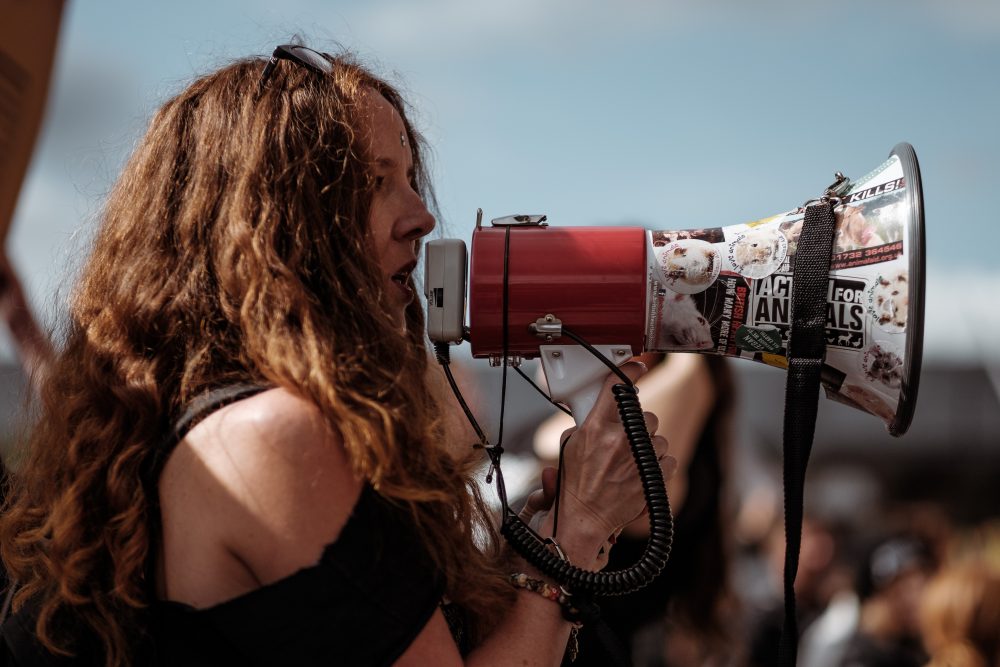We all know what we think about human rights ourselves, but what about the public at large? Well, the answer could be on the horizon, thanks to a new inquiry.
The Parliamentary Joint Committee on Human Rights is currently pondering the question as part of its wide-ranging inquiry into factors which impact human rights enforcement in the UK.
I recently attended an oral evidence hearing, where RightsInfo founder Adam Wagner was amongst those giving evidence to the Committee. Here are just a few of the issues that came up.
What is a ‘Human Rights Culture’?

Image credit: Em Watson / Flickr
The Human Rights Act was passed 20 years ago, enshrining fundamental rights contained in the Human Rights Convention – like the rights to life, liberty and fair trial – in British law for the first time in history. So, in the two decades since it was passed, has it become a valued and integral part of our culture?
The existence of a ‘human rights culture’, in practice, would go beyond intellectual understanding and awareness, to a deeper, more personal attachment to human rights amongst people within society – to the point that human rights are embedded in national consciousness.
However, some individuals and media outlets misuse the term ‘human rights culture’ in a disparaging way, to imply that the emergence of human rights has created a culture of entitlement and leads to serious criminals being granted excessive leniency.
Do We Have a ‘Human Rights Culture’ in The UK?
Image credit: Anna Dziubinska / Unsplash
Polling data indicates that there is a spectrum of views on the Human Rights Act in the UK: with staunch opponents of the Act at one end, and vehement supporters at the other. Interestingly, there is a large middle group (around 50 percent) made up of people whose views can be described as either ambivalent, uninterested or conflicted.
There are also variations in the pattern of attitudes towards human rights across the devolved nations. For example, recent polling data suggests that attitudes towards human rights are more positive in Scotland than in England.
Overall, there are mixed views on, and a lack of understanding and appreciation of, human rights in the UK. Whilst, as a result, we may not have a genuine ‘human rights culture’ (yet!), many of the values which underpin human rights are considered to be ‘British values’. These include fairness (protected by, for example, the right to fair trial) and democracy (upheld by freedoms of expression, assembly and thought).
Why Are Human Rights Sometimes Controversial?

Image Credit: Matteo Catanese / Unsplash
Perhaps one of the main sources of controversy surrounding human rights stems from their universality. We all have human rights, simply by virtue of being human.
There is a perception within society that, owing to their universal nature, the primary function of human rights is to protect groups such as criminals and terrorists against proper action and punishment. This perception can be exacerbated by some sections of the media, which tend to distort human rights law in their reporting.
This perception is also bolstered by some politicians. Last year, Theresa May famously said, following a string of terror attacks in the UK, that she would scrap human rights laws to impose new restrictions on terrorist suspects. This statement was strongly criticised on two grounds. First, for using human rights law as a scapegoat, implying that it works to hinder the government’s counter-terrorism efforts. It was argued that, in reality, this is a gross simplification and misrepresentation of human rights law and overlooked the real barriers to effective action against terrorists, for example, funding cuts. Second, for responding to terrorism by denouncing democratic values and civil liberties, rather than committing to strengthening and reinforcing them.
Why Universality is Important

Image credit: Jens Johnsson / Unsplash
The Human Rights Convention was drafted in the aftermath of the Second World War, when mass atrocities on a previously unimaginable scale were inflicted by a government against its people. Hence, modern human rights law exists not only to vest rights in individuals but to place responsibilities and constraints on governments.
The origins of modern human rights law – a response to the Nazi government’s treatment of Jewish people – illustrates the importance of the universality of human rights. If we pick and choose who should be entitled to human rights, it leaves scope for abuse by governments.
Human rights law guarantees everyone basic standards of dignity, but this does not mean that in practice everyone enjoys the same freedoms, regardless of their conduct. Most rights, like the right to liberty, are qualified, and can be restricted to protect public safety and national security. Therefore, sending people to prison, in accordance with a system of due process and fairness, is compatible with human rights.
Human rights law provides the framework through which this balancing process can take place, whilst minimising scope for abuse. Only three rights enshrined in the Human Rights Convention are absolute – the right to be free from torture or inhumane and degrading treatment (article 3), the right to not be held in slavery or servitude (article 4) and the right to not be punished without due process of law (article 7). This reflects a broad consensus that in a democratic society such treatment should never be justified.
How Does This Affect Enforcement, If At All?

Image credit: Clem Onojeghuo / Unsplash
Mixed opinions on human rights, and the issues human rights law confronts, are inevitable. Human rights do not need to be popular to be effective, but legitimacy and democratic buy-in are important. Moreover, simply having human rights law enshrined in law is not enough – those rights must be realised. People need to be aware of their rights in order to enforce them effectively.
It’s been 20 years since the Human Rights Act was passed, and there are still many people who are not aware of their rights. It is essential that, during the next 20 years, we aim to increase understanding and awareness of human rights, and challenge distortions and misrepresentation of human rights in the public sphere.








